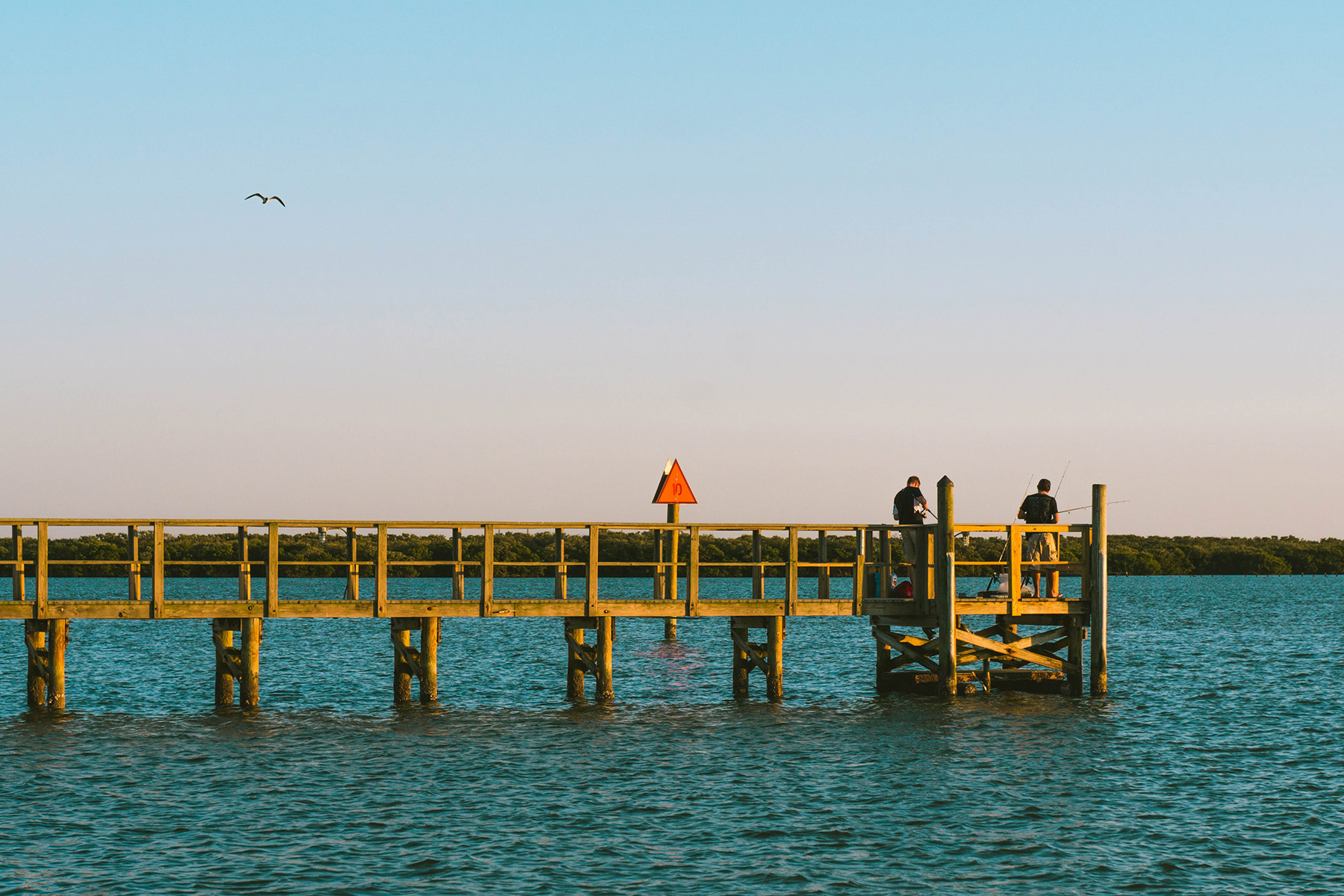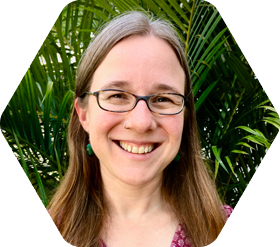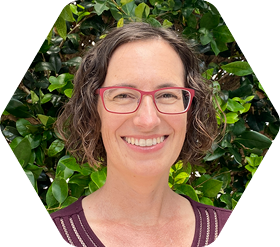They are a common sight around Tampa Bay—people fishing from the shoreline or from bridges or piers. To some of the people, it doesn’t matter what they catch. To others, it matters a lot. They depend on the fish to supplement their diet.
But because of pollutants in the water and the fish, along with shifting locations where people are allowed to fish, landing that sea trout or redfish could be dangerous.
How dangerous? For the past eight years, Eckerd College faculty members Jessie Fly, Ph.D., and Noëlle Boucquey, Ph.D., have been studying the well-being of shore fishers. Now, thanks to a three-year grant from the National Science Foundation and a collaboration with the University of South Florida, Fly, an associate professor of anthropology, and Boucquey, an associate professor of environmental studies, can take their research to a new level.
Titled Spatial Dynamics of Emerging Chemical Threats Along Social and Ecological Gradients in a Large Urban-to-Rural Estuarine System, the grant will allow Fly and Boucquey to team with faculty from USF’s College of Marine Science. USF Professor of Biological Oceanography Steven Murawski, Ph.D., is the grant’s principal investigator, and two other USF faculty members, like Eckerd’s Fly and Boucquey, are co-principal investigators. Eckerd College is budgeted to receive $188,328 of the total $749,908 grant.
“Unlike traditional studies that focus on a single pollutant class or generalized fishing populations,” this grant states that “this project investigates a broad spectrum of chemicals and prioritizes the needs of subsistence fishers, who face potentially higher exposure due to their consumption patterns.”
“The project’s findings,” it continues, “combined with toxicology and contaminant data from another analysis of emerging chemical threats, will inform the development of data-driven risk assessments and pollution mitigation strategies, while also promoting environmental justice and protecting the health of vulnerable populations.”
The exciting part, Fly explains, “is that we’re joining forces with the folks from USF and will combine some of the research techniques they use with what we use. From the beginning, Noëlle and I have been interested in environmental justice. We’re documenting where people are fishing around the bay and why. We know people are getting kicked out of certain places for social or political reasons. Are they moving to a place with poor water quality or somewhere that’s more dangerous to fish?
“That’s what we want to find out,” Fly adds. “Are there more contaminated fish in certain places? We have not been able to do water quality testing in those areas, so we don’t know the answer yet. And it depends on the species of fish. Some species have high concentrations of chemicals that are harmful to humans. We’re trying to find out if there are certain groups of people who are more prone to catch this kind of fish.”
For a decade, Fly conducted research in a small coastal village in the Mekong Delta of Vietnam. She investigated the links between governmental policies encouraging shrimp aquaculture and access to the resources needed by members of the local community to maintain their livelihoods. “I’ve always been interested in the interaction between groups of people and their environment,” she says, “who benefits from good resources and who is excluded from those benefits.
“The idea that there might be an environmental justice issue around the bay is something we’ve been trying to document for a while,” she explains. “If we can pair it up with some biochemical data, that might help drive policy. We’re excited to see if those things match up. We have been wondering about this for years.
“If what we surmised is actually going on out there, we can use that information to help people who want safe access to fish.”
The grant will begin Jan. 1, 2025, and the research will include participation from Eckerd College students.















